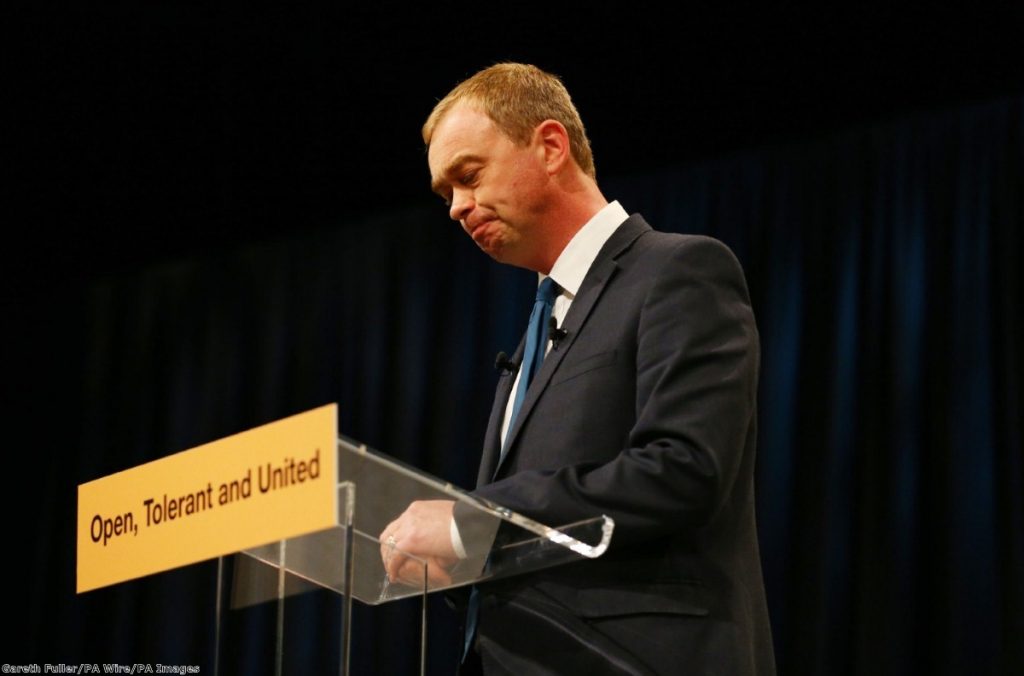By Chris Key
As someone who is Catholic and a member of the Liberal Democrats, I find reconciling faith and political views quite difficult. On certain issues, I agree more with the Lib Dems and on others more with the church.
This week former party leader Tim Farron revealed on a Christian radio station that he had not been truthful when he said "gay sex is not a sin" during the 2017 general election.
His troubles began in April 2017 when interviewed by Cathy Newman as to whether he thought gay sex was a sin. Rather than be clear, Tim opted to reply that "we are all sinners".


After a tough few weeks of campaigning, in which the only issue many journalists asked him about was his faith, he clarified that he did not think gay sex was a sin. Some felt that this was unfair, but journalists should ask whatever they like. His fudge in the end failed to shut the issue down and did him more harm than good.
Ironically, only one person I canvassed in the election raised the issue, out of hundreds. To many of us in the party, this week’s revelation came as a big disappointment – but it cannot have come as a great shock.
His declaration was swiftly rejected by his successor, Vince Cable, and deputy leader Jo Swinson. They rightly argued that the Lib Dems have championed LGBT rights for years – including campaigning to repeal Section 28, equalising the age of consent and legislating for equal marriage during the Coalition government.
Tim was tortured by being an evangelical Christian as well as leader of the Liberal Democrats. It is clear he was under pressure from within the party not to say what he really thought.
I disagree profoundly with Tim on his view of gay sex being a sin, despite being a practicing Catholic. I have seen several people close to me go through torture trying to be accepted as gay.
Iain Dale, the conservative commentator on LBC suggested that while Farron was of course perfectly within his rights to hold his views, perhaps if he held them he should not have put himself forward to be party leader. It is hard to disagree with him.

That said, such issues as gay marriage and abortion are normally treated as votes of conscience. When the issue of reducing the legal issue for abortion was voted on in the Commons a few years ago, the party’s MPs were split on the issue. Some of the comments directed at those who voted for lowering the limit could only be described as vitriolic. Farron has always been clear that he respects the rights of others to have a different opinion. The issue is that he was not honest with the voters.
However, while the storm around Farron's views on gay sex is not in line with the vast majority of the party's members, we should not forget that his faith also had a profoundly positive impact on the party.
Week after week he campaigned for the UK to take in child refugees from Calais. He, along with Labour MP Yvette Cooper and Conservative MP Heidi Allen, tenaciously pressed the government to support the Dubs amendment. His conference speech from 2015 on this topic still makes my hairs stand on end. Ironically Jacob Rees-Mogg, who has also talked about his Catholic faith, voted against the Dubs amendment but has rarely been criticised for doing so, even though this goes against any notion of Catholic teaching one can imagine.
There is no doubt that Tim's faith played a central part in this campaign. Even the Daily Mail ended up agreeing with Farron on the issue – probably the first time I can remember that paper agreeing with the Liberal Democrats on anything.
Another central plank of Farron's legacy was his campaigning for social justice – again he fought an effective campaign against tax credit cuts while Labour dithered in the House of Lords and didn’t back a Lib Dem fatal motion on the issue. Compassion was a word which was commonly found in his speeches. The night after the Richmond Park by-election he went and slept out in an effort to raise money for the homeless.
To see Farron's image unravel in the way it has this week is upsetting for many. He tried to walk a very hard tightrope and in the end, he fell. I just hope one-day people will see the link between his faith and his positive political achievements as well as the more dispiriting ones. There is a danger that those with faith will feel that political life is incompatible with being able to express their religious beliefs and hence won't put themselves forward for election. That would be a tragedy for our democracy.
Chris Key is an active member of the Liberal Democrats, and campaigner on issues related to mental health. He joined the party in 2015.
The opinions in politics.co.uk's Comment and Analysis section are those of the author and are no reflection of the views of the website or its owners.









